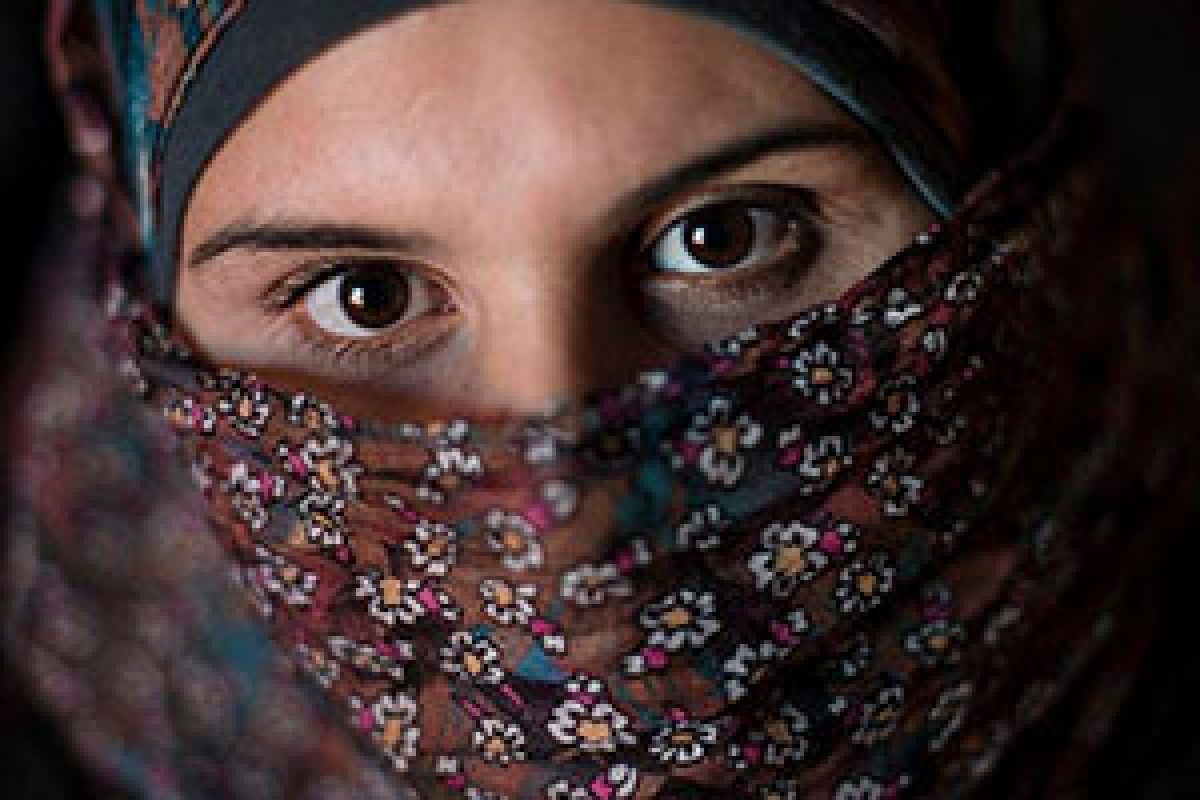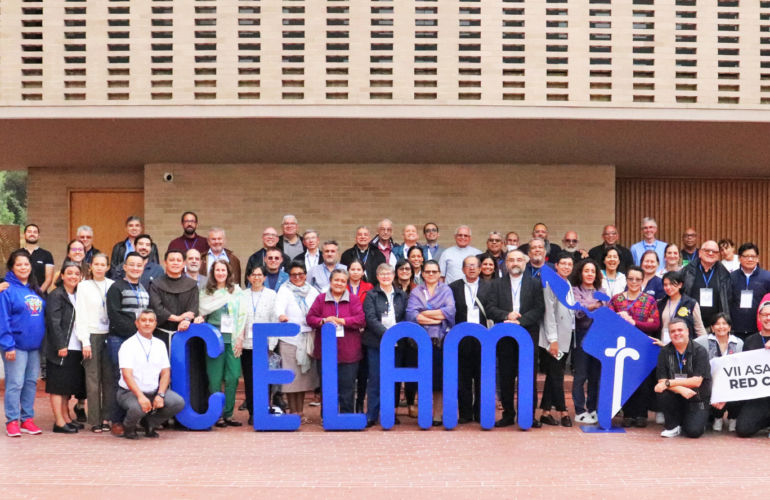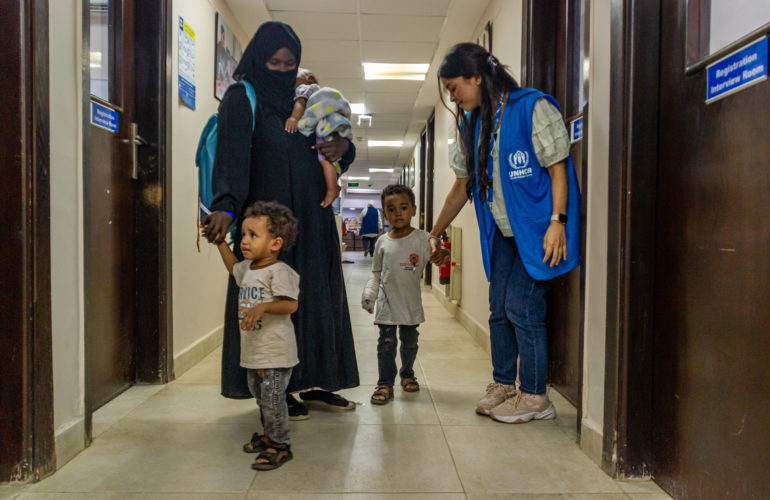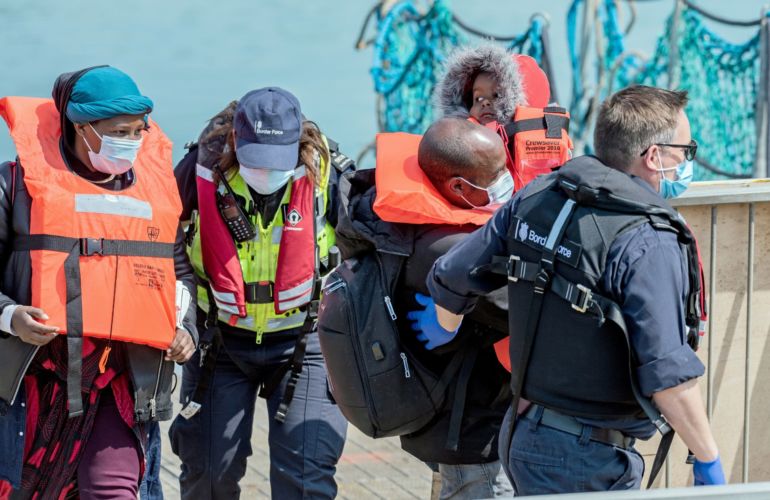A Syrian Family Finds Protection in the Netherlands

Amira* and Shayma* are sisters and lived in Damascus for most of their life. They left Syria in early 2014 to escape violence. Amira was pregnant and was anxious about giving birth in a country where access to medical care and security were no longer guaranteed due to the ongoing conflict. With her husband and her sister, she decided to seek refuge in Lebanon. After spending some weeks in Beirut, they moved to Istanbul, where they joined other friends from Syria, who had also escaped the brutality of the conflict. Eventually Amira decided to move temporarily to Saudi Arabia, where her in-laws were living and where she could safely give birth. Her sister Shayma went with her, while her husband Nizar* remained in Turkey to work. Although the Turkish government prioritizes Syrians as a population in need of special protection and allows them to officially work in the country, life in Turkey was not easy: the country hosts millions of Syrian refugees, and all are in search of a place to live and to work, which is often a source of tensions with the local communities.
Without consulting Amira in Saudi Arabia, Nizar decided to attempt the sea crossing in the Mediterranean, with the hope of getting to Europe, where his family would be able to have a better future. He embarked on a boat directed towards Greece with dozens of other refugees and migrants on board. Just a few kilometres from the shore, the boat sank, and everyone was left in the middle of the sea. Unlike many others, Nizar was lucky enough to make it to the Greek shore, as he knew how to swim.
After submitting an asylum application, a long period of loneliness and sadness started for him. His wife Amira had given birth to their little girl Yara* and he could not leave the country to visit Amira and the baby in Saudi Arabia.
“My husband obviously didn’t inform me about his plans to reach Europe by boat, because he knew I would have discouraged him in his dangerous endeavors. If he had died during the sea crossing, I would not have had any idea where to look for him, and my daughter would never had met her dad.” Amira explains.
She adds: “2014 was a very tough year for me. I fled my country while I was pregnant, and I have been on the move quite a lot, first to Lebanon, then Turkey, and finally Saudi Arabia. I was so happy about giving birth to Yara and yet so sad that she could not meet her dad. And I was not sure we would ever manage to be all together one day in a safe place.”
Nizar asylum request was finally accepted. Amira and their daughter Yara, together with Shayma, were finally able to join Nizar in Europe under a family reunification scheme. Today the family lives in the Netherlands. “We are all very happy now here. The government supports us with a small amount of money, which allows us to pay for accommodation, food, and education. We are taking classes to learn Dutch, and in September Amira and myself will enrol at University. Amira would like to obtain a Master’s degree in European Studies, while I wish to pursue a business administration or food technologies curriculum.” Shayma explains.
She continues: “We feel safe here and we are very grateful to the government of the Netherlands for the support it gives to people like us, who did not leave their own country out of choice, but were forced to do so by the political situation. Before the conflict, we had a nice life in Syria and we were a very happy family. When bombs started to regularly fall around Damascus, we realized we had to leave in order to survive. Our parents were not able to come with us. They are too old to attempt to reach Europe illegally. The journey and all the unexpected burdens would be too strenuous for them. They still live in Damascus. The decision to leave them behind was a tough one to make.”
She adds: “And we still have friends in Turkey who are waiting for a long-term solution. What should we tell them? To take the risk, like in our case, to cross the Mediterranean on a dangerous boat or to ask for refugee status and wait for years until they can be transferred to another country in a legal way?”.
This is a tough question to answer for anyone working in refugee protection. It shows the urgent and unprecedented need to set up safe and legal avenues for people in desperate need of protection.
*Names changed to protect the identity of the individuals


